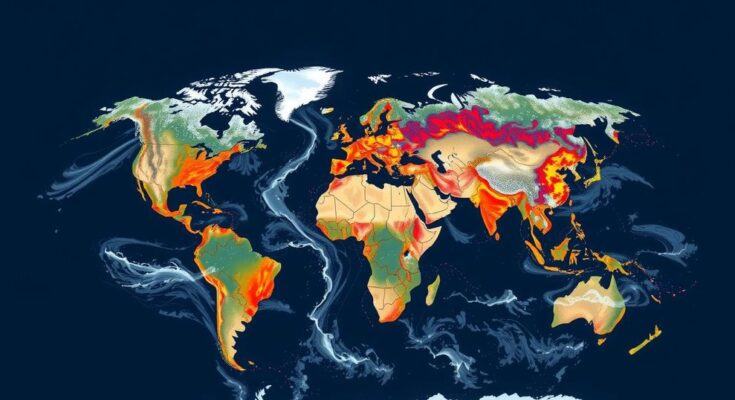Carbon Brief’s interactive map tracks the impact of climate change on extreme weather, finding that 74% of analyzed events were exacerbated by human influence. The map compiles over 600 studies on nearly 750 extreme weather incidents, demonstrating a significant correlation between climate change and extreme weather phenomena globally, while highlighting the uneven distribution of research focus across regions.
In 2004, researchers marked a pivotal moment in climate science by determining the impact of human activity on a specific extreme weather event: the European heatwave of 2003, which resulted in over 70,000 fatalities. This study pioneered the field of “extreme event attribution,” which assesses to what extent climate change has influenced extreme weather phenomena globally. Carbon Brief’s recent interactive map compiles over 600 studies relating to nearly 750 extreme weather occurrences and trends, revealing that 74% were exacerbated by climate change, while 9% were mitigated. As the research in this domain has expanded, 83% of studied events demonstrated some level of human influence on their occurrence. Conversely, 10% showed no human impact, and 7% were inconclusive due to insufficient data. This updated map is the sixth iteration of Carbon Brief’s effort to display this burgeoning field of research. It categorizes events across regional summaries, where the graphical representation effectively reflects the prevailing trends across different types of extreme weather events, particularly in terms of their likelihood, severity, and the influence of climate change. Notably, in the context of specific extreme events studied, the 2019-20 Australian bushfires were identified as being more severe due to climate change, as was reflected in various studies, which collectively state that climate change significantly increases the risk of extreme fire seasons. Additionally, the map also provides insights into regional disparities, revealing that a disproportionate number of studied extremes occur in developed regions, highlighting a need for greater focus on extremes in underrepresented areas, like the global south, where data availability remains a challenge. This research serves as an essential tool for understanding the direct impact of climate change on extreme weather events and guides future climate resilience efforts.
The concept of extreme event attribution has gained traction since the publication of the inaugural study in 2004, swiftly evolving into a significant field of research. These studies employ climate modeling techniques to analyze and quantify changes in extreme weather occurrences due to human-induced climate change. The meticulous mapping of these attributions allows for clearer insights into how individual weather events and broader trends are influenced by climate change, benefitting policymakers and communities in planning for and mitigating the impacts of extreme weather.
This comprehensive update to Carbon Brief’s mapping of extreme weather attribution reveals critical insights into the connection between climate change and weather extremes worldwide. With the majority of events studied being more often aggravated by human influence, it underscores the urgent need for climate action. Additionally, the uneven distribution of studies highlights disparities in research focus, suggesting a need for enhanced data collection in less-studied regions to ensure equitable global understanding of climate impacts.
Original Source: www.carbonbrief.org




